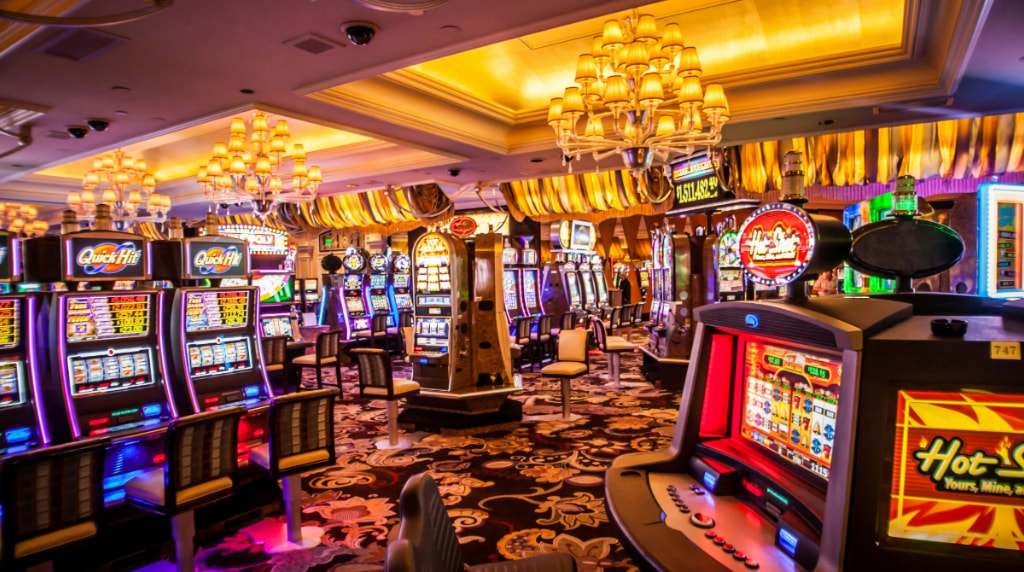Marina Bay Sands Pays $6.5 million Settlement
A Chinese customer at the Singapore mega casino Marina Bay Sands has been paid a $6.5 million settlement in a case related to irregular financial dealings in 2015. The case was brought against the casino to recover the amount that had been sent to other patrons without adequate approval. The casino has also lifted a ban against the Chinese gambler provided he abides by their customer policies.

Marina Bay Sands is the crown-jewel of the Singapore skyline. Recently there has been a series of financial transactions brought to the attention of law enforcement agencies in both the US and Singapore, as the casino is forced to pay a $6.5 million settlement to one Chinese claimant. ©Pexels/Pixabay
The strange legal dispute between a former Chinese customer and Marina Bay Sands has finally reached a conclusion this week as the claimant received his settlement request of $6.5 million in full. Marina Bay Sands had little choice to accommodate his demand as lawyers representing the claimant had presented convincing evidence to the courts detailing the financial irregularities of transactions dating back to 2015.
The luxury casino that has become a prime landmark in Singapore’s skyline is owned by US billionaire Sheldon Adelson and his company Las Vegas Sands, and they have agreed to fulfill the demands of the Chinese claimant, granting the full amount in an out of court settlement. The gambler identified as Wang Xi will also be allowed back into the premises following a brief period of being barred. Marina Bay Sands has said he will be permitted to enter the casino once again as long as the casino’s customer policies are respected by the guest.
Coverage of the settlement has been kept very closely under-wraps, and neither party has been willing to speak publicly over details of the settlement or the sequence of actions that led to the current deal. The only evidence being seen is through official court documents and formal legal requests submitted by lawyers on behalf of both parties in the settlement.
US Department of Justice Investigating
The main dispute of this case centers around the issue of payment amounting to nearly $6.5 million being sent to the wrong person. In this case, though, there are a number of other areas that still remain under investigation, in particular the intentional involvement in money-laundering which is being investigated by the US Department of Justice.
Whilst the court case between the gambling claimant and the casino has been settled, with both parties accepting a non-admission of liability, an investigation into money-laundering activities still remains active against the casino. The US Department of Justice is investigating whether the casino has been involved with laundering cash through the accounts of VIP gamblers who frequently visit Marina Bay Sands.
This ongoing investigation into serious legal breaches by Marina Bay Sands came to the fore in January when the US Department of Justice issued a grand jury subpoena to the former compliance officer at the Singapore luxury casino. The subpoena and the information gained from it will be used throughout the ongoing investigation into potential abuse of internal financial controls at the casino.
Singaporean authorities are also aware of the potential breach of protocol and potential “money laundering facilitation that has gone on at the casino. The city-state is already dealing with significant pressure from the mainland to tighten its grip over the financial dealings of US-based companies operating within the zone, and a money-laundering scandal involving a subsidiary company of US-based Las Vegas Sands may be enough to tip the tide of political opinion against the casino.
One potential solution to the case being forwarded by the Ministry of Home Affairs is to review the thresholds utilized in the Casino Control Act. The current global standard limit of a financial transaction to a casino is $3,000 – anything above this value raises a flag and will be investigated across a number of agencies looking into potential money-laundering activities. In Singapore, the threshold value is much higher and there is a view of lowering it to the globally acceptable level.
Casinos across the region are bracing themselves for a range of sweeping compliance requirement changes to their standard operating procedure. Whilst Marina Bay Sands is probed over anti-money laundering violations, thousands of accounts belonging to wealthy customers at the casino are being poured over by investigators. In order to ensure that laws are being properly adhered to, and to reduce the devastating impact of money-laundering across the world, there is a strong desire to bring in this new set of laws.
Marina Bay Sands – which operates as a subsidiary of the Las Vegas Sands casino enterprise headed up by Sheldon Adelson – is one of the most profitable casinos on the planet. The impressive operating income of the Singapore venue accounts for nearly one-third of all profits of its parent company and highlights the importance of this branch in the global reach of the casino. Asian operations for Las Vegas Sands which include several key locations in Macau account for 85 percent of the company’s global revenue, which in 2019 exceeded $13.5bn. These impressive financial results and ongoing performance is helping to make Sheldon Adelson one of the richest men in the United States.



